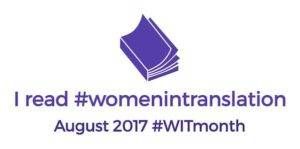
How You Can Participate in Women in Translation Month This August
#WITMonth launched in 2014, in response to the lesser attention received by works by women in translation.
The month-long series of investigations and celebrations — held each August — is short for “Women in Translation Month.” From August 1 to 31, it’s a time to read and talk about women writers from around the world who write in languages other than English.
As #WITMonth founder Meytal Radzinski has written:
Approximately 30% of new translations into English are of books by women writers. Given how few books are translated into English to begin with, this means that women are a minority within a minority. The problem then filters down to how books by women writers in translation are reviewed/covered in the media, recognized by award committees, promoted in bookstores, sent out to reviews, and ultimately reach readers themselves.
While imperfect, WITMonth gives many publishers the chance to promote their existing titles written by women in translation, while also giving readers an organized means of finding the books that already exist. WITMonth ultimately serves to help readers find excellent books.
How can you participate?
WITMonth organizers have compiled a few ideas.
- Booksellers and librarians: Make a #WITMonth table and promote your favorite books by women writers in translation, alongside newer releases. If someone is looking for some different recommendations, help guide them to some of the great women in translation out there.
- Bloggers and journalists: We encourage you to talk about the issue: Look at your own stats and ratios, question your reading biases. Address the issue and help raise awareness.
- Reviewers: Review new and backlog titles by women writers in translation, from all languages and from all over the world. Help bring these books to the public’s notice and talk about them in interesting ways.
- Publishers: Release your existing ratios and acknowledge any imbalances you might have. Try to find more of the brilliant women writers we all know are writing in all sorts of languages, all over the world. If you’re struggling, see the lists compiled by women critics and translators for LitHub.
- Readers: Read, discuss, and share. Please use the #WITMonth tag as much as you can.
What about Trans or Nonbinary Authors?
While the word “women” is at the center of the “women in translation” project, the core idea is to give voice to those who are often ignored. Thus, #WITMonth has been expanded to include transgender or nonbinary authors in translation.
You can find more at womenintranslation.com and, on twitter, at @Read_WIT.















